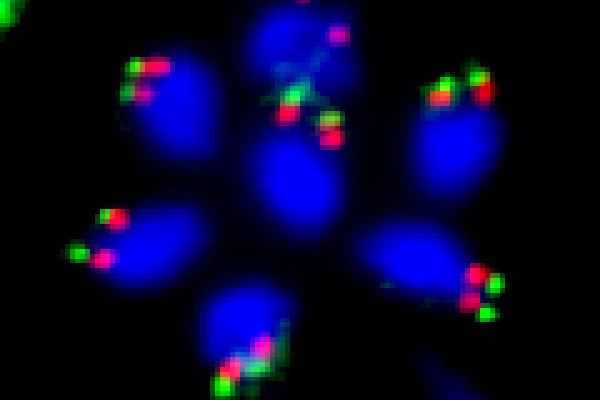Public Health team to study control of malaria-related parasite growth with $2.1-million NIH grant
Animal cells similar to those of humans contain a “control room,” called the centrosome, which regulates cell replication. Disrupt this core hub and you kill cell division.
That is the simple idea behind a new five-year, $2.1-million National Institutes for Health grant recently awarded to the USF College of Public Health’s Department of Global Health and the Florida Center for Drug Development and Innovation.
The National Institute of Allergy and Infectious Diseases-funded study may help identify new factors required for the growth of malaria-related parasites and lead to new therapies to combat malaria, a mosquito-borne tropical disease that exacts a huge toll on human health in developing countries.

Principal investigator Michael White, PhD
The project began with a key discovery by Michael White, PhD, professor of global health at USF Health, and Elena Suvorova, PhD, a research assistant professor at the USF Center for Drug Development and Innovation (CDDI).
They showed that in malaria-related parasites known as Toxoplasma gondii the centrosome is more complex and very different from their human hosts. The parasite hub houses novel factors, including unusual protein kinases, or enzymes, that offer new targets for drug development.
Principal investigator White and co-principal investigator Suvorova will collaborate with newly hired CDDI medicinal chemist Jim Leahy, PhD, an expert in developing drugs against kinases in cancer, and University of Georgia cell biologist Boris Striepen, PhD, to study centrosome control of Toxoplasma growth.

Magnified nuclei (blue) of malaria-related Toxoplasma parasites undergoing division. The duplicated chromosomes will be segregated by an unusually complex centrosome with two types of cores, shown here in red and green.
Dr. Michael White is a professor in the USF College of Public Health. The Department of Global Health is his academic home. The department offers more than 10 concentrations that lead to MPH, MSPH, DrPH, and PhD degrees, as well several dual degrees, graduate certificates, and special programs. Most recently, Global Health added an online master of public health degree in infection control to its academic offerings.
Related story:
USF Health receives $2.1M grant to study on new factors required for growth of malaria-related parasites
